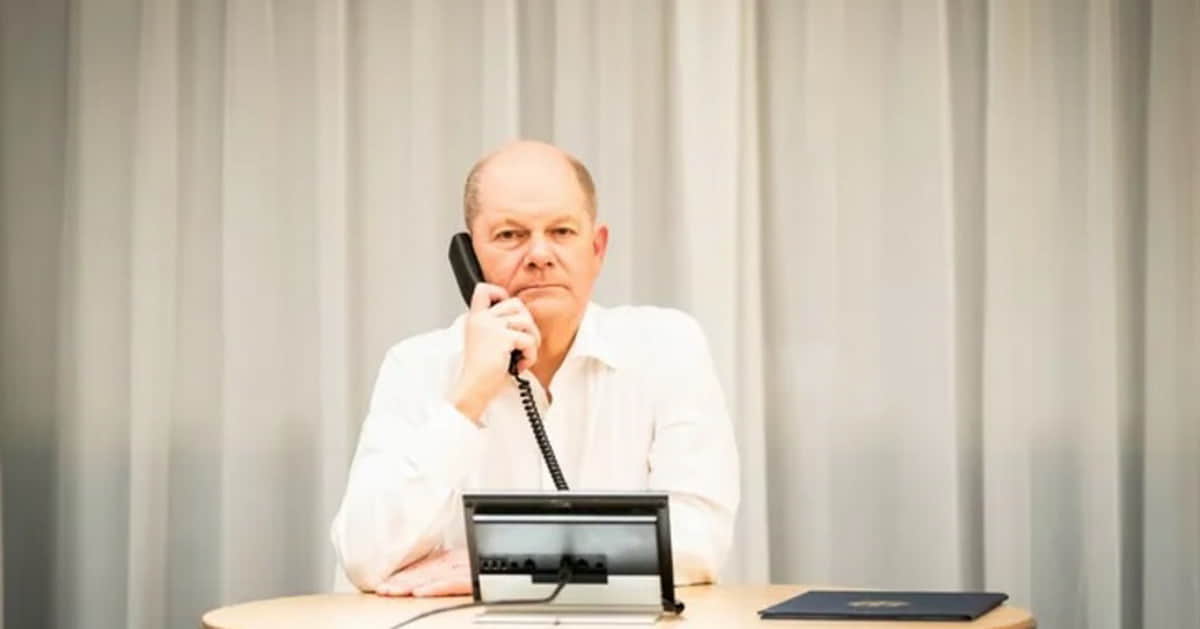Why Scholz needed a conversation with Putin and whether he achieved his goal

German Chancellor Olaf Scholz took a step that drew sharp criticism from Kyiv at the end of the last week. He called Russian leader Vladimir Putin and spoke with him for an hour. Ukrainian President Volodymyr Zelenskyy responded by saying Scholz had "opened Pandora's box." Ukraine's Ministry of Foreign Affairs reminded that Putin interprets appeasement attempts as a sign of weakness.
However, key Western partners did not echo Ukraine's outrage. Reports later suggested that the talks occurred with the tacit approval of other leading Western leaders. But the most significant question is how this move was received in Germany itself.
Advertisement: Read more in the article by Khrystyna Bondarieva, a European Pravda journalist - 60 minutes of shame for Scholz: What Germans think about the Chancellor's attempt to resume dialogue with Putin. What was Scholz trying to achieve?
According to the German government's official statement, Scholz urged Putin to negotiate a ceasefire. But could he truly believe that, after nearly two years since their last conversation, Putin had become open to negotiations? The answer is no. At least, there is no evidence to support such optimism.
A few saw in Germany any benefit from the dialogue with Putin, either for Ukraine or Berlin itself. Among the plausible reasons for the call were: to reaffirm to Putin that Western military support for Ukraine will not waver; to warn him against banking on a potential deal with the future US president, Donald Trump, that might undermine Ukraine. "Scholz intended to convey that Ukraine's future will not be decided solely by Trump and that Europe must be included in any potential peace negotiations," noted Spiegel.
Additionally, Scholz acknowledged that Putin's stance on the war remains unchanged. Independent analysts attribute the chancellor's move to Germany's internal politics. On 23 February, Germany will hold a snap election.
Scholz's Social Democratic Party (SPD) is heading toward a likely defeat. Moreover, a growing number of SPD members are distancing themselves from Scholz as a candidate for chancellor. In this context, positioning himself as a peace negotiator could be a tool to bolster Scholz's standing ahead of the elections.
As Spiegel recalls, during the European Parliament election campaign in summer 2024, the SPD promoted Scholz as a "chancellor of peace." The party is reviving this strategy now, aiming to attract voters sympathetic to pro-Russia factions like the leftist Alliance of Sahra Wagenknecht and the far-right Alternative for Germany (AfD). The call with Putin, as Cologne University political science professor Thomas Jager explained, was meant to showcase Scholz's active role in peace efforts. A Die Zeit commentator described Scholz's move as purely electoral, not genuinely aimed at peace.
The journalist argued that Scholz could now tell leftist leader Sahra Wagenknecht, "While you just talk, I engage with Putin," and respond to opposition CDU candidate Friedrich Merz with, "I'm negotiating while you want to send Taurus missiles."
Ironically, these negotiations might inadvertently expedite the delivery of Taurus missiles to Ukraine, something Scholz has tried to avoid as he rapidly loses his grip on power.
If you notice an error, select the required text and press Ctrl + Enter to report it to the editors.